We can’t say enough about our Community Space. This is the central hub where folks can come by for a hot meal, hot shower, fresh clothes, and to build relationships with people to grow their support network.
This space is invaluable to the folks who access its services every day. And, this is why our biggest fundraiser of the year, our Coldest Night of the Year walkathon, sees money raised going directly back into the operations and programs in the Community Space. For a lot of folks, this space is so much more than a warm, indoor place to meet daily necessities – it can also be the first step towards finding their unique pathways out of poverty.
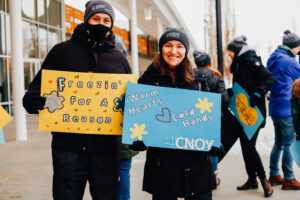
Relationships are everything in the Community Space.
While things like meals and showers might be what first brings people through the doors, they soon learn what other programs might help them along. We offer programs like housing, employment, and mental health, to name a few, which help uncover what barriers people are facing. As staff work to build relationships with people to help find their strengths, folks can start recognizing how best to address these root causes.
No two experiences with houselessness are alike. Building positive relationships can help people recognize their strengths and resiliency – ultimately helping them find their path out of poverty. And, when they’re ready to take those first steps in their journey, Bissell Centre staff help find the resources they need to live a good quality of life.
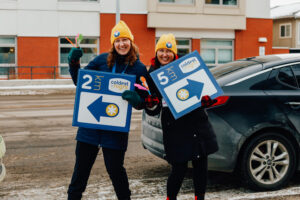
Every journey is unique – and everyone gives back differently.
Doug has been coming to the Community Space for a few years now. In his own words, it’s his home away from home. The relationships he’s built are like family to him. And like any good family, he finds ways to give back.
The main way Doug gives back to the Community Space is by volunteering in the Community Closet, helping folks find new clothes. Other times, Doug walks around the encampments nearby to see if anyone needs any help. Any way that Doug can help, he wants to offer it to the community that’s given him so much.
“If it weren’t for Bissell Centre, I think we’d all be lost,” says Doug. “They’re helping me out, so I want to help them out too.”
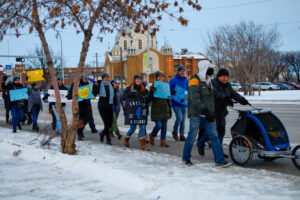
How you can help too.
This year’s Coldest Night of the Year fundraising walk sees all proceeds raised going directly back to the Community Space to support its invaluable operations and programs. Start a team, raise some money, and bring out the whole family for a walk downtown on February 24, 2024. Thank you to all our event sponsors, including our Lead Sponsor Capital Power for providing the single largest sponsorship contribution we have ever received.
Ten years ago, RJ Formanek wanted to start a conversation about Fetal Alcohol Spectrum Disorder (FASD). As an adult who has FASD, he thought educating people and showcasing his diverse skillset and reliance was important. And the Red Shoe Walk was born.
RJ figured he should stand out – red shoes did the trick. With his crimson kicks, RJ took to the street, stopping to talk with anyone willing to learn about FASD. And no wonder he wanted to start a conversation about FASD – especially when it feels like no one is talking about FASD.
This year, our Red Shoe Day Event sees us walking from Hope Terrace, our supportive living apartment for folks with FASD, through the King Edward Park community, and all through Bonnie Doon and into Strathcona and then returning to have lunch and an art sale at the Shamrock Curling Club. The art sale will feature artists who have FASD. Register today to join us on September 9 from 10:30 a.m. to 2:00 p.m. for a Red Shoe Walk through the community and bring awareness to a disorder that needs to be talked about more.
4% of Canada’s population has FASD
There are more people in Canada who have FASD than autism, cerebral palsy, and Down syndrome combined. And no two people who have FASD are alike. Many people who have FASD have rewarding careers and fulfilling lives – they uncover their strengths and lean on them to find success.
FASD affects people differently depending on when alcohol was introduced to their fetal development. Alcohol slows down development, both physically and mentally. This means how FASD affects a person is highly individualized, often requiring individualized programs and supports to help them live with dignity.
FASD is a hidden disability as most people who have FASD have no physical signs of impairments. Adolescents and adults who have FASD can experience high rates of difficulties in daily living and adverse outcomes, including school disruption, mental health issues, and challenges with independence. This is why the Red Shoe Walk is so important.
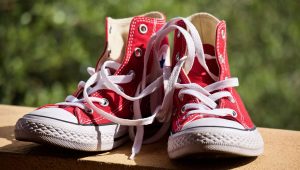
There is shame in an FASD diagnosis
Often, people miss or never receive an FASD diagnosis because of the shame involved – not on the people who have FASD, but on those who carried them in utero. There are ad campaigns and information packages all over highlighting the risks of drinking alcohol while pregnant.
A person may consume alcohol while pregnant without ever knowing they’re affecting the fetus they carry. They may not know they’re pregnant, have been told a little alcohol doesn’t hurt, come from a community where that information isn’t available, are experiencing mental health or stress-related illnesses prompting them to drink, or for many other reasons that have nothing to do with other issues like poverty. With a better understanding of how a person can end up consuming alcohol while pregnant, we can better understand FASD.
FASD can affect anyone – not only people in poverty
A common misconception around FASD is it only affects people experiencing poverty – we know this is false. People who have FASD can come from a range of backgrounds and situations, sometimes even from affluent families. We’ve seen this firsthand at Bissell Centre with participants in different programs telling us their stories and experiences.
Where the issue around poverty gets cloudy is how people who have FASD can be more likely to experience houselessness. That difference in understanding and mental processing can make navigating systems that we take for granted more difficult. We designed our programs specifically with this in mind – ensuring that services for folks who have FASD are readily available no matter the individuals’ personal circumstances.
Helping people live with dignity
Our Fetal Alcohol Spectrum of Services (FASS) program works to understand individuals who have FASD as whole people. We work one-on-one with our program participants to identify their unique strengths to guide them toward personal fulfillment.
Part of our FASS program is Hope Terrace. This is a supportive housing building specifically designed for people who have FASD. Wraparound services for FASD are included in this building, which also features a Snoezelen room to help individuals with emotional regulation.
Recently, a group from our FASS program contributed to the book Born Broken, detailing what our participants found most important to them in their own voices. This book highlights what folks who have FASD have to offer the world, their fears and struggles, and how they’re moving forward.
Maybe no one is talking about FASD simply because they don’t understand it. On September 9, keep an eye out for some folks walking all in Red Shoes. Ask questions about FASD and the Red Shoe Walk to ensure we are all talking about FASD.
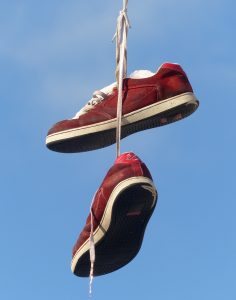
Every year, Tim Horton’s holds its Smile Cookie fundraiser, where each local franchise owner can pick a charity in their community that the proceeds from cookie sales will support. It’s a great way to help raise money for great causes directly in our communities!
This year, a group of Edmonton franchise owners decided to try something different. The group agreed to pool their efforts to make a larger collective impact – ultimately choosing Bissell Centre as their charity of choice.
And just like that, this quickly became one of the largest fundraising campaigns we’ve held – raising more than $400,000 in a single week.
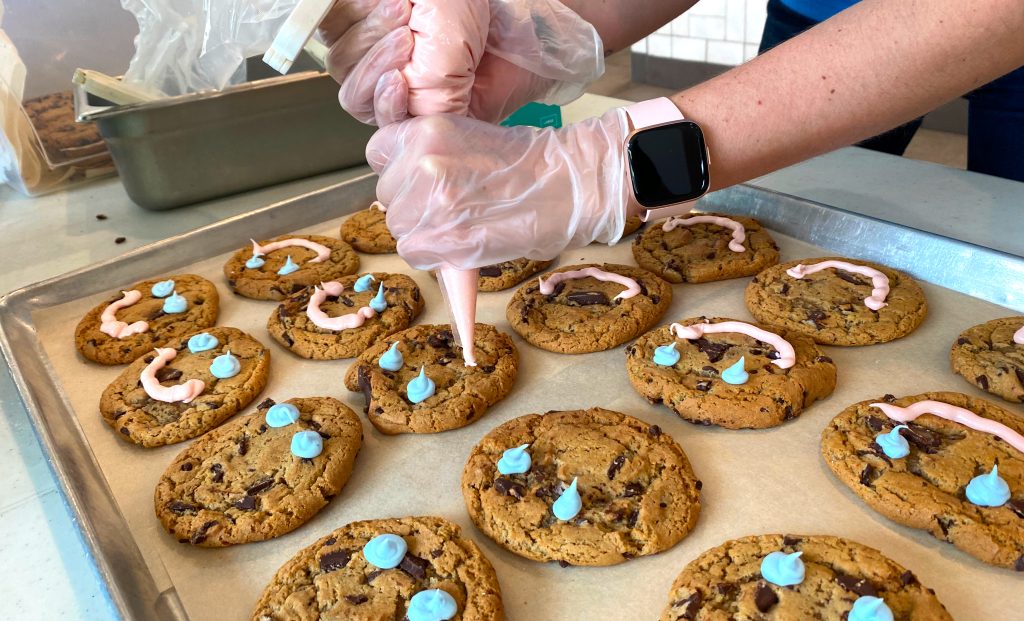
Bissell’s Child and Family Supports
Funds from this spring’s Smile Cookie campaign all went to support our Child and Family Supports Program. Last year, we helped more than 1,600 families find their way out of poverty and emergency situations. These programs make a massive impact that people in Edmonton don’t often see.
“It’s things like connections to free pre-natal care, parental supports, or free access to emergency essentials like diapers and formula,” says Jonathan Mackereth, Development Officer with Bissell Centre.
Mackereth explains that Bissell has run a childcare for more than 50 years, serving families in the downtown core. The centre is fully staffed by Early Childhood Education professionals, providing Early Childhood Development for short- and long-term – serving childcare from newborns to six years old.
“There’s are enough challenges finding quality childcare – finances shouldn’t be one of them,” says Mackereth “Lots of parents even drop-off their kids to access other programs like our Employment Services or Financial Empowerment workshops, making it an essential part of our approach to ending poverty.”
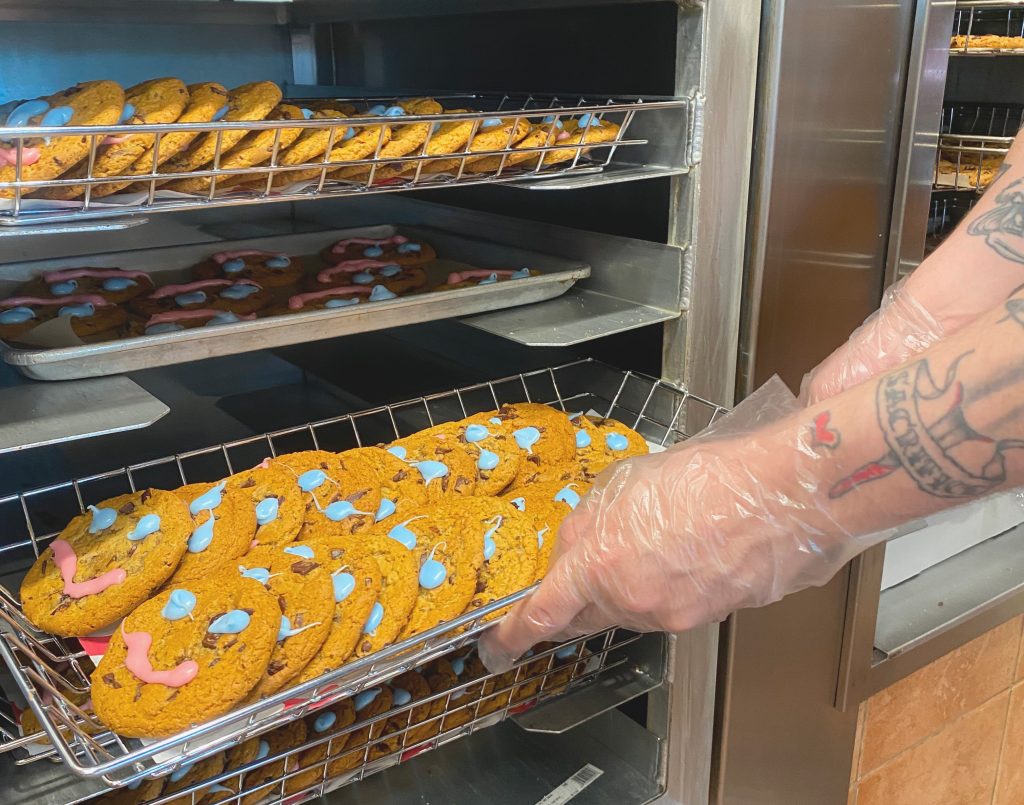
Supporting and Celebrating Together
Learning that 147 Tim’s locations all came together to support Bissell Centre, “caught us a little off guard,” Jonathan jokes. “We knew right away opportunities like this don’t come often. We pooled resources into making sure folks knew that buying a cookie would help a child.”
Team members from Bissell Centre could be found at a few different locations around the city during this campaign. Whether it was celebrating with giant cookie cut-outs by the drive-thru, or putting on hair nets and decorating cookies, the teams stepped up to make the week unforgettable.
By the end of the campaign, more than 300,000 cookies were sold – raising more than $464,000! People didn’t hesitate to add a smile cookie to their regular double-double orders – with some businesses and schools pre-ordering up to 1,500 cookies at a time.
“On the first day, we had a manager come out to see us,” Jonathan recalls. “She said in the first two hours of the morning rush, they sold more than a quarter of the cookies they sold for the entire campaign last year.”
We can’t thank the Edmonton Tim’s franchisees enough for all the support they’ve given us. This will directly impact families and children experiencing houselessness and poverty in Edmonton. Thank you for helping us make Edmonton a little bit more of an equitable place to call home.







